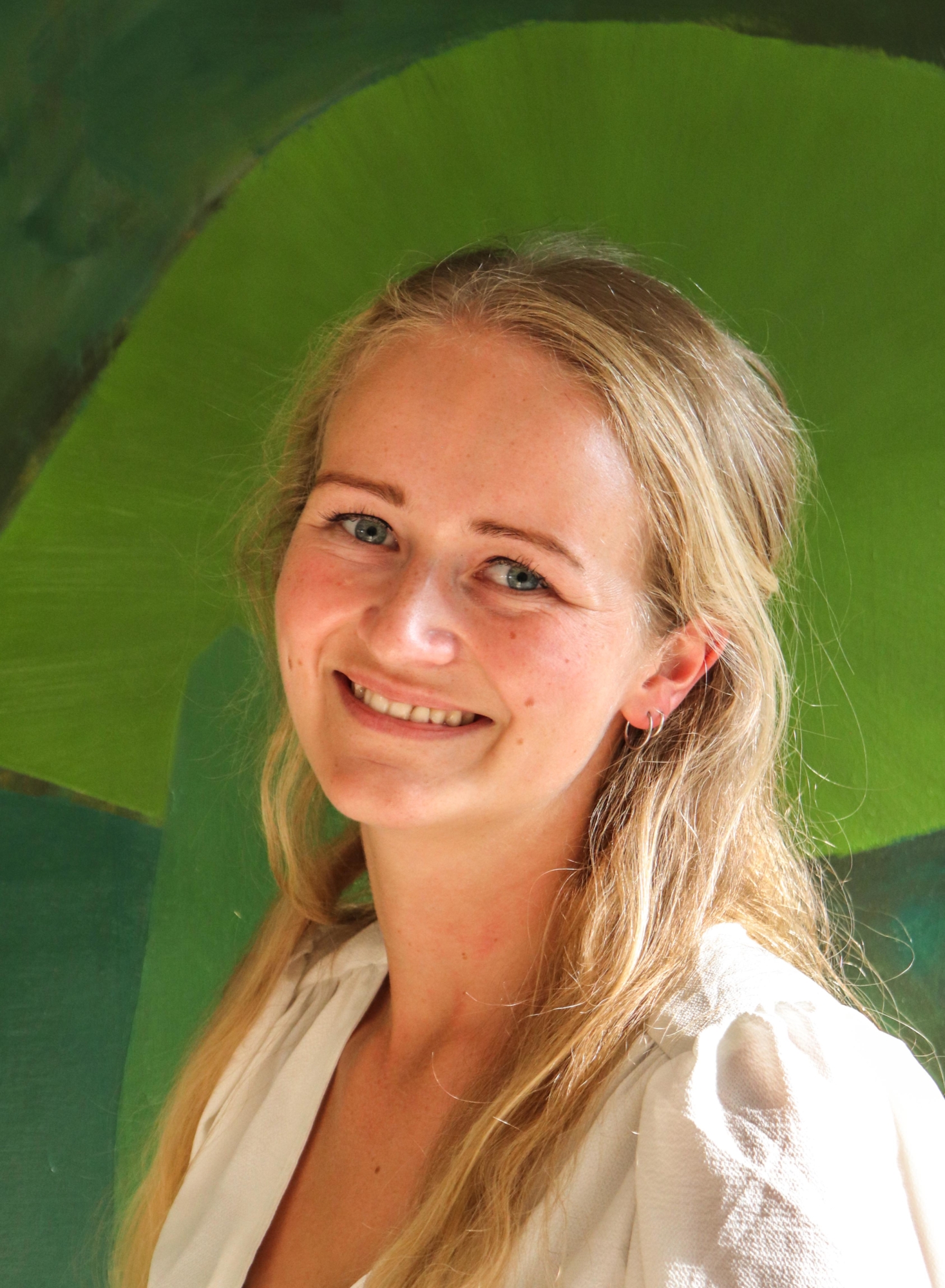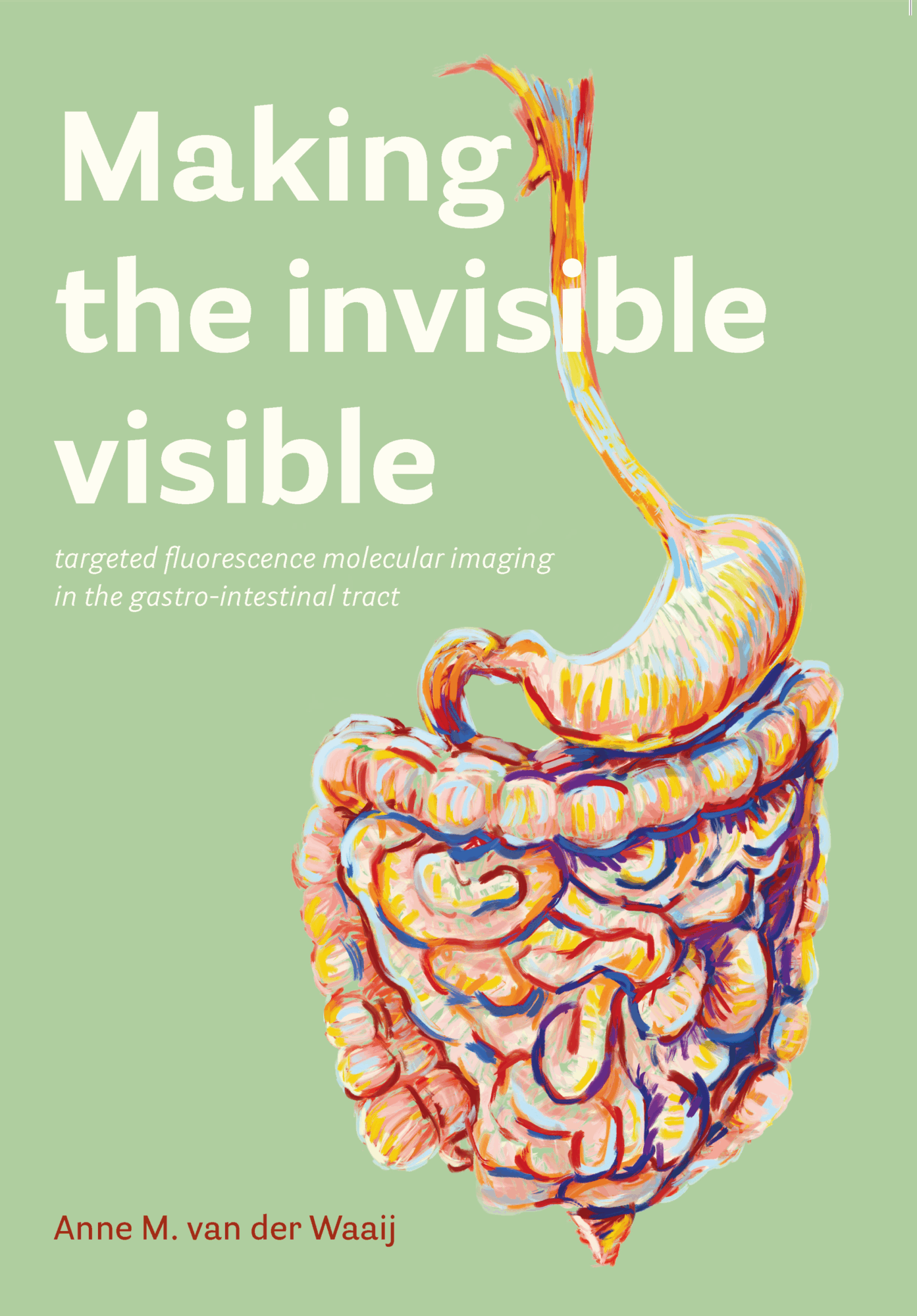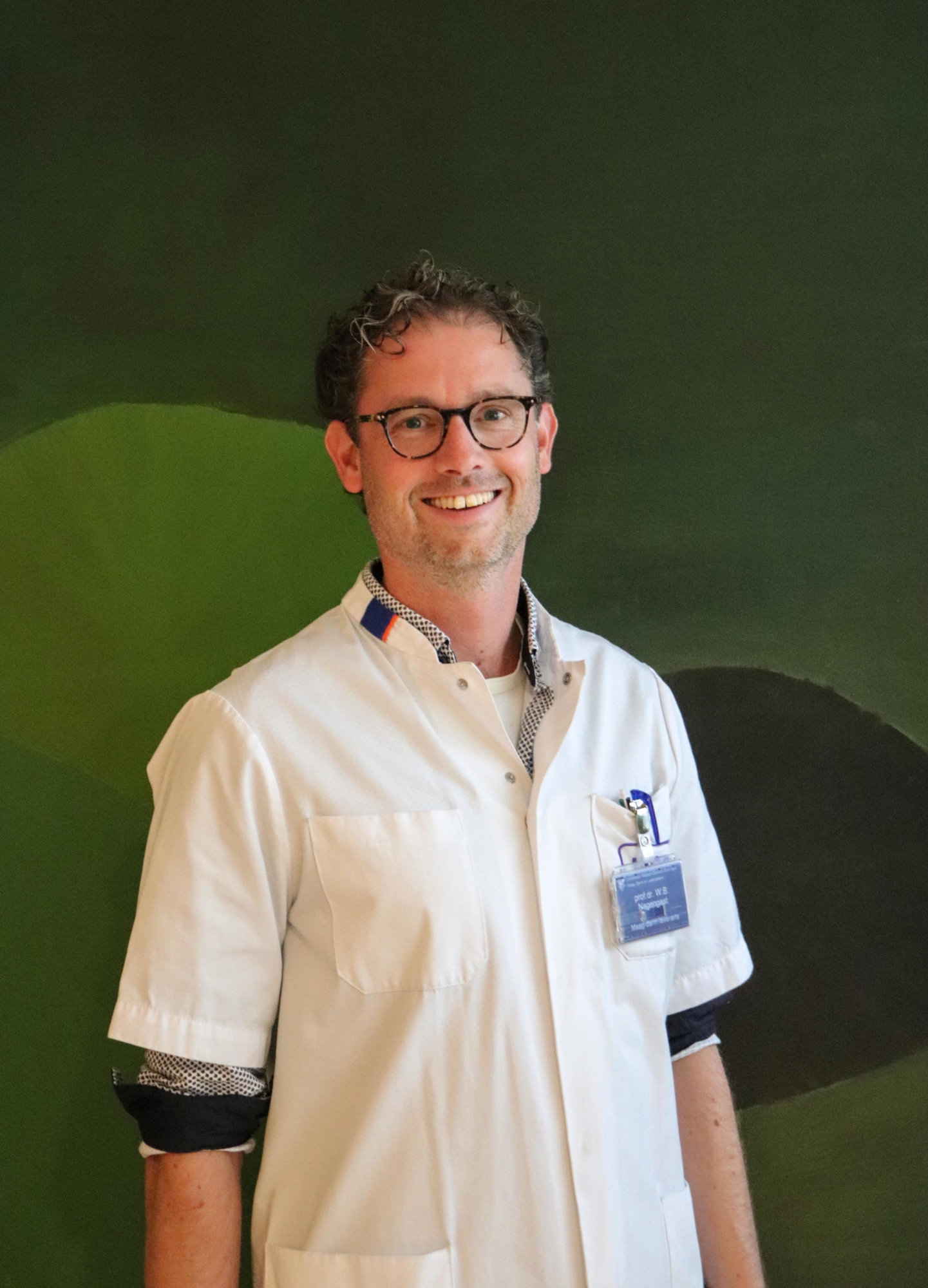Upcoming: PhD defense Anne van der Waaij

Anne van der Waaij will defend her PhD on July 2nd at 12:45 at the University of Groningen’s academy building. The title of the thesis is “Making the invisible visible – targeted fluorescence imaging in the gastro-intestinal tract”. The defense can be followed online via this link, and the thesis is also available online.
Abstract
Treatments for cancer and inflammatory diseases are often based on the “average patient”, but it is much more effective to tailor therapy to each individual. This thesis explores an innovative technique called fluorescence molecular imaging (FMI). In FMI, medicines or biomarkers are linked to special fluorescent dyes—called “tracers”—that can be visualized inside the gastrointestinal tract using a specialized camera. This allows doctors to see exactly where and how drugs spread in the body, which cells they bind to, and whether any tumor cells remain after chemotherapy and radiation.
The thesis focused on using FMI in patients with inflammatory bowel disease (IBD) and those with rectal or esophageal cancer. In IBD patients, a fluorescently labeled drug called vedolizumab was shown to bind primarily to inflamed tissue, especially targeting plasma cells, a type of immune cell. This insight could help improve treatment effectiveness. For rectal and esophageal cancer, FMI was used to detect residual tumor tissue after chemoradiation. Using a tracer called bevacizumab-800CW, doctors were able to distinguish patients with and without remaining tumor. Another tracer, cetuximab-800CW, performed less well because immune cells disrupted the signals. Additionally, the uptake of durvalumab, an immunotherapy drug, was studied in esophageal tumors. The amount taken up varied greatly between patients, which might help predict who will benefit from this treatment.
Combining these techniques may in the future improve personalized treatments for each patient. While promising, further research and technical development are needed to enable widespread use.

